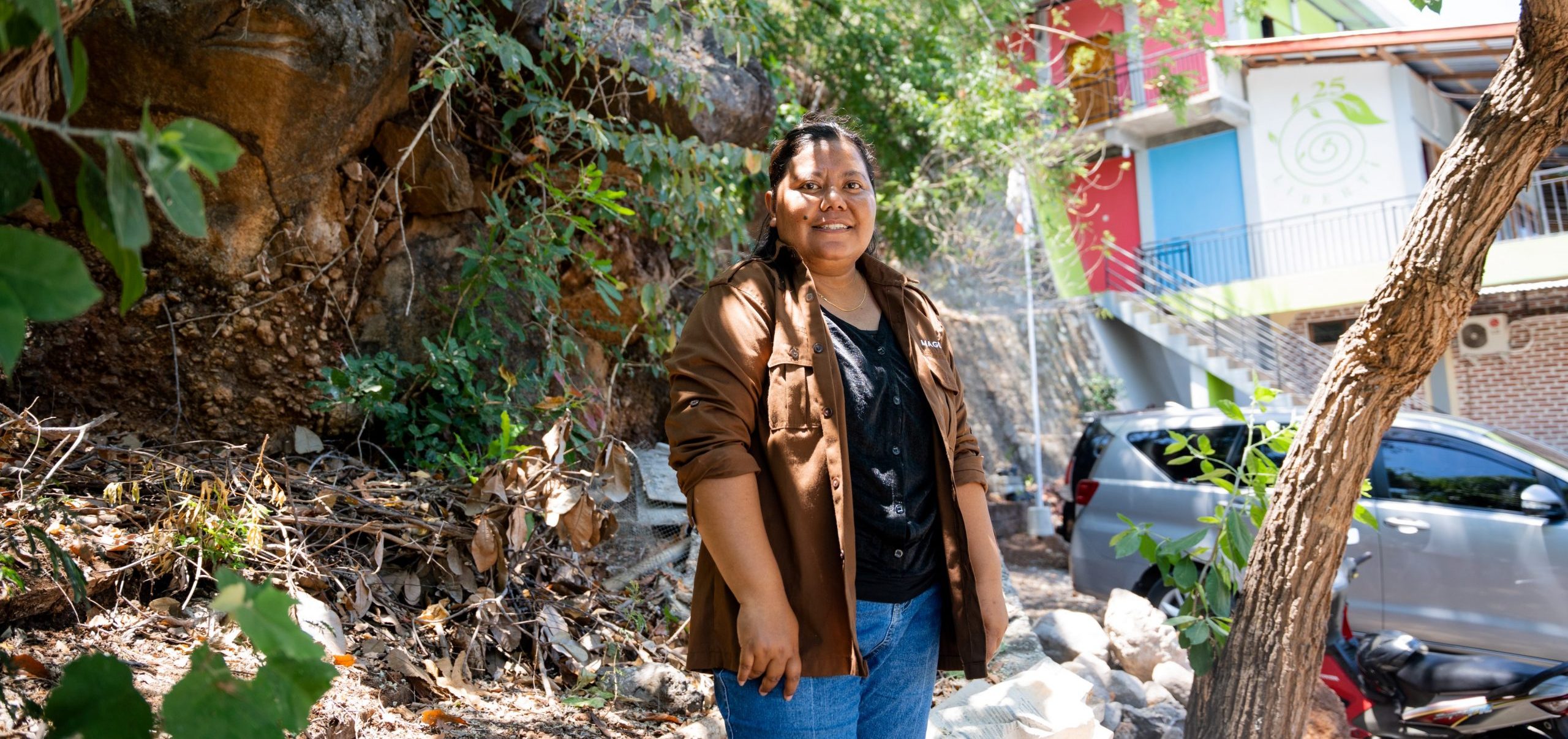“I’m a project manager in Larantuka (Indonesia) working on a Climate and Disaster Resilient Communities project with Oxfam. We mostly focus on climate problems and drought.”
- Magda is a project manager in Indonesia supporting communities to adapt to the climate crisis
- Magda works with Oxfam partner Foundation for Social Studies and Development (YPPS) to help communities adopt sustainable farming practices
- This project supports families to grow various types of climate-resistant crops to improve their food security and provide a possible livelihood
Surviving and adapting to drought
“East Flores and Lembata in Indonesia are under threat. Because every year, drought occurs. The response and adaptive measures are still very limited.”
“Now, our portion is to bridge how the people in the Climate and Disaster Resilient Communities project can have resilience and live together with the climate, with drought, so they can survive and maintain stable food security.”
“My dream for the future is to make this happen for more people.”
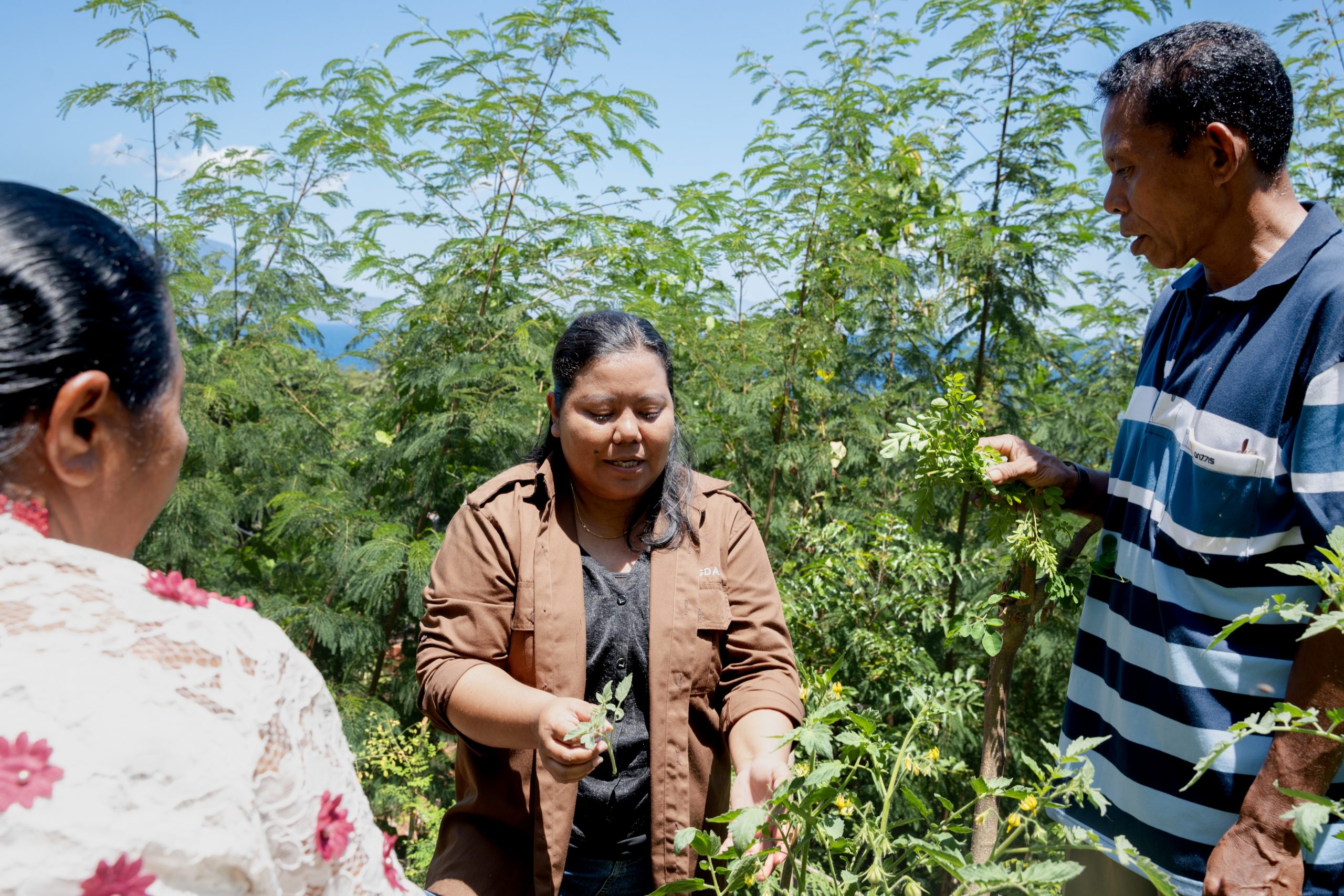
The climate crisis and poverty
The climate crisis brings enormous injustice. It is affecting us all, but not equally. In fact, the people who have contributed least to the changing climate are being affected by it the most, and are likely to be less able to protect themselves from the impacts.
Too often, the communities who’ve spent generations nurturing their lands and waters are denied their fair share of its natural resources. This puts their very survival at risk and threatens to push communities into poverty.
Magda, Oxfam and you
Magda is a Project Manager at Oxfam partner Foundation for Social Studies and Development (YPPS) in Indonesia. YPPS work closely with communities and governments to help residents of East Flores adapt to the climate crisis through sustainable farming and food processing techniques.
“I’m working with Oxfam on a project that supports women in rural areas to respond and adapt to natural disasters. Sustainable farming methods help prevent the acceleration of climate change, while also improving food security for families”, says Magda.
“The support includes making two types of farms. There is the wet season farm, used to cultivate food crops. And its derivative, yard farming, which utilises the small yard and limited resources to maintain food security.”
“Our goal is on food security, but there are people who can sell their production excess, and some even innovate to make new products —improving their income, all those are a bonus and a success for the farmers.”
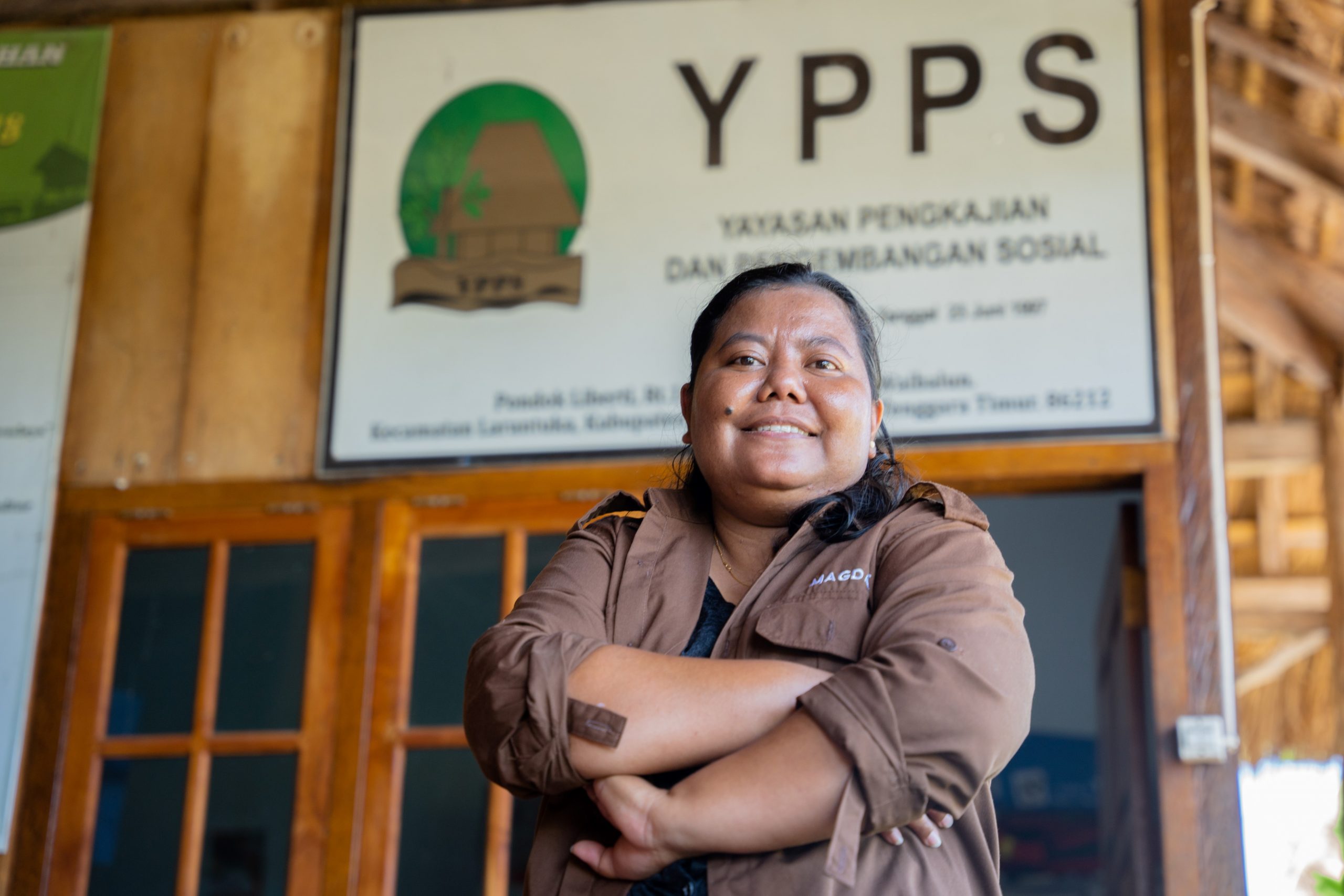
A sustainable future for East Flores and beyond
“The farming industry can only harvest once, but by choosing adaptive plant types, and choosing a cultivation process that is nature friendly, allowing decomposition without burning, the people can harvest several times from one type of plant.”
“Our project has changed the whole mindset of my community. Agriculture has moved away from slash-and-burn, which destroys ecosystems. Now people use garden waste for mulch to restore topsoil after harvesting.”
“YPPS hopes that the people really implement the cultivation process that we have shared … Maybe not only in the eight assisted villages, but for all of East Flores or all of Lembata, so many more will know this concept, so we may be able to prevent the acceleration of climate change, while also improving food security for families.”
Oxfam acknowledges the support of the Australian Government through the Australian NGO Cooperation Program (ANCP).
This work is only possible with support from people like you. Learn more about how you’re helping us alleviate poverty through our climate justice work.
Read more stories
From supporting First Peoples to thrive and providing humanitarian aid to advocating for climate justice, gender equality and better livelihoods, here’s how we’re working towards a world without poverty.
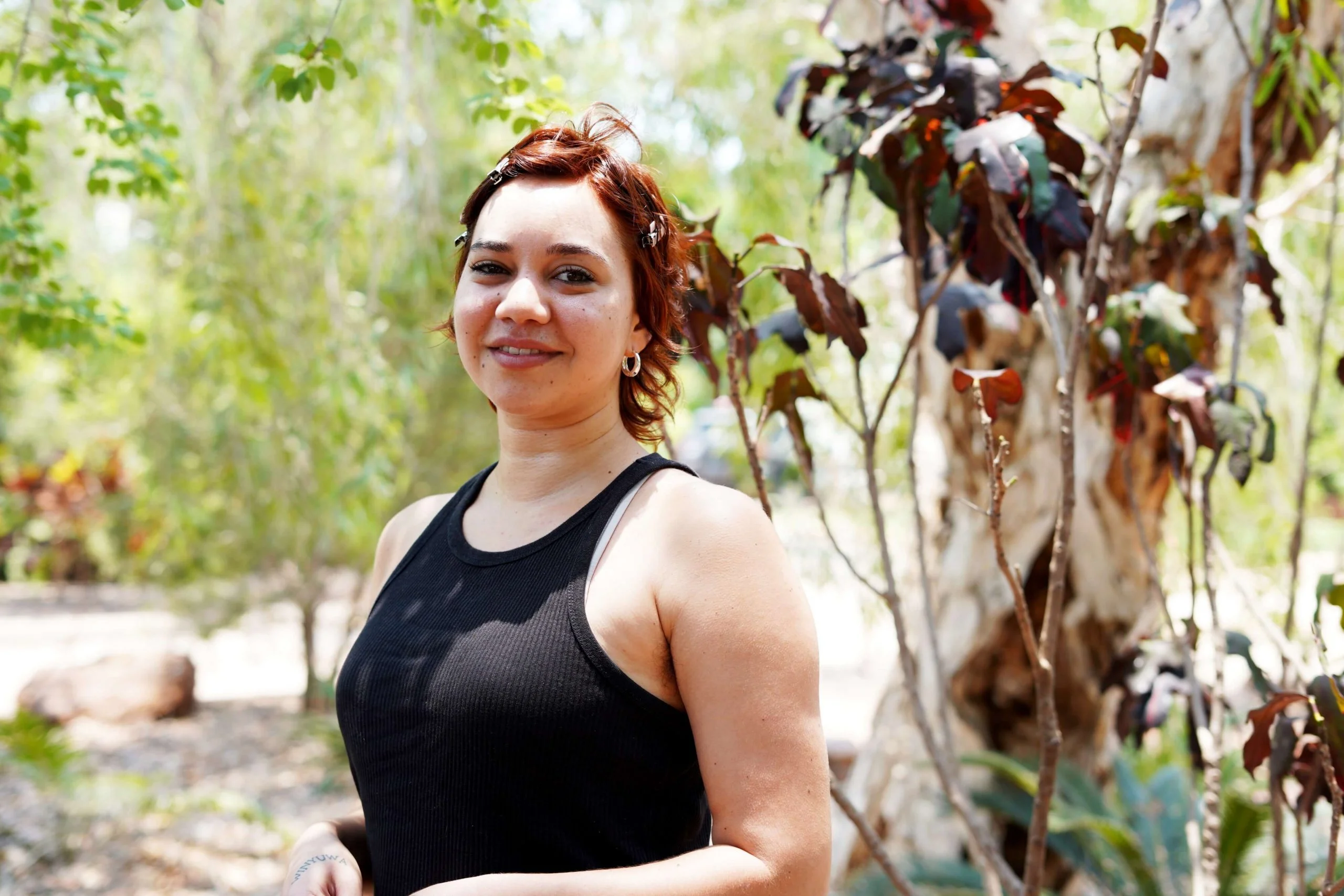
Obby’s story
“I am a Bunuba-speaking Miluwindi-clan woman from Fitzroy crossing. I grew up there, left for school, and now I’m back living there. I wanted to come back and learn my language and my culture properly.”
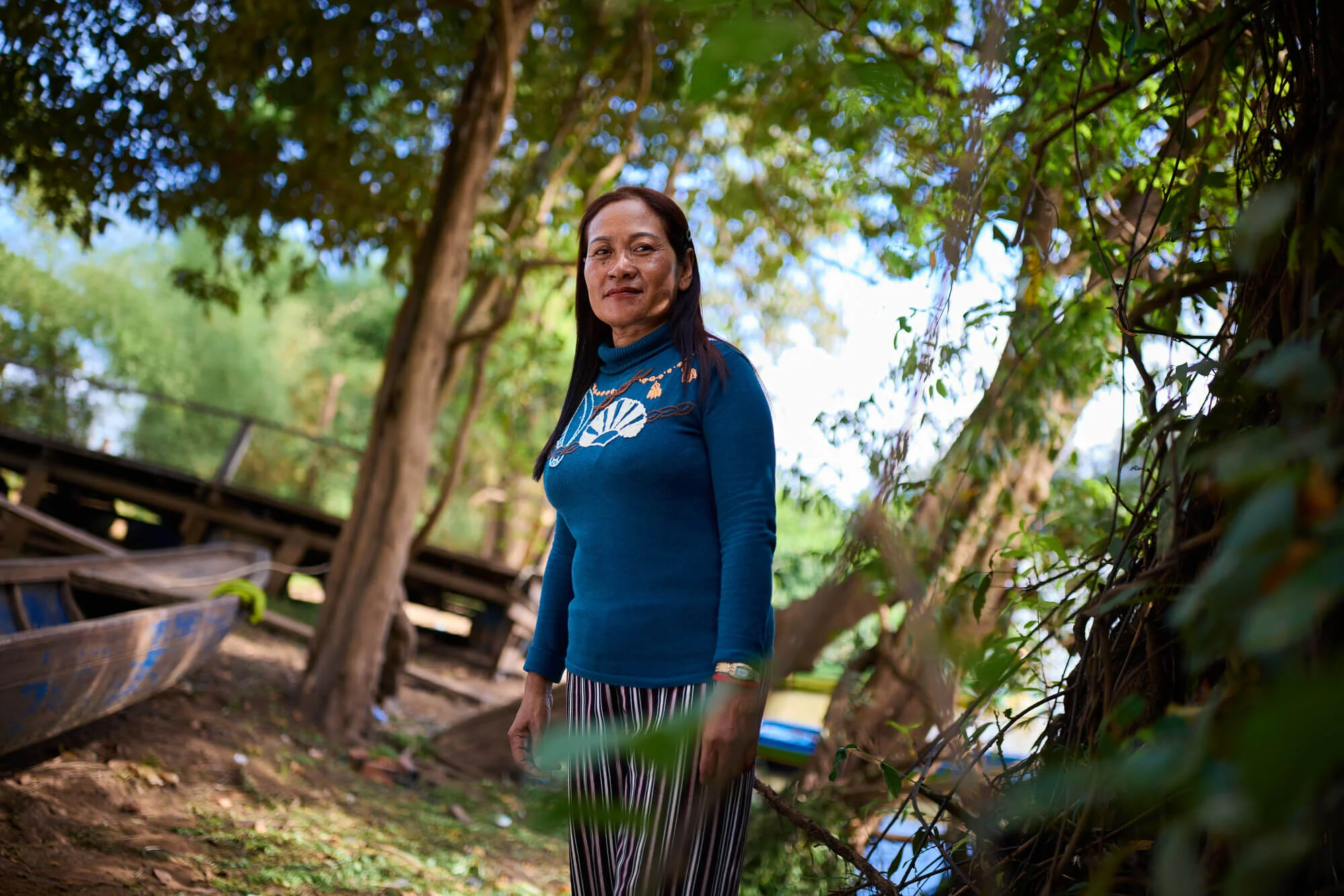
Siphon’s story
“My name is Siphon. From 2017, I worked as a volunteer in the community fishery management committee. I want to protect natural resources both in the water and on land… I gather for patrolling in this lake, and sometimes in the river.”
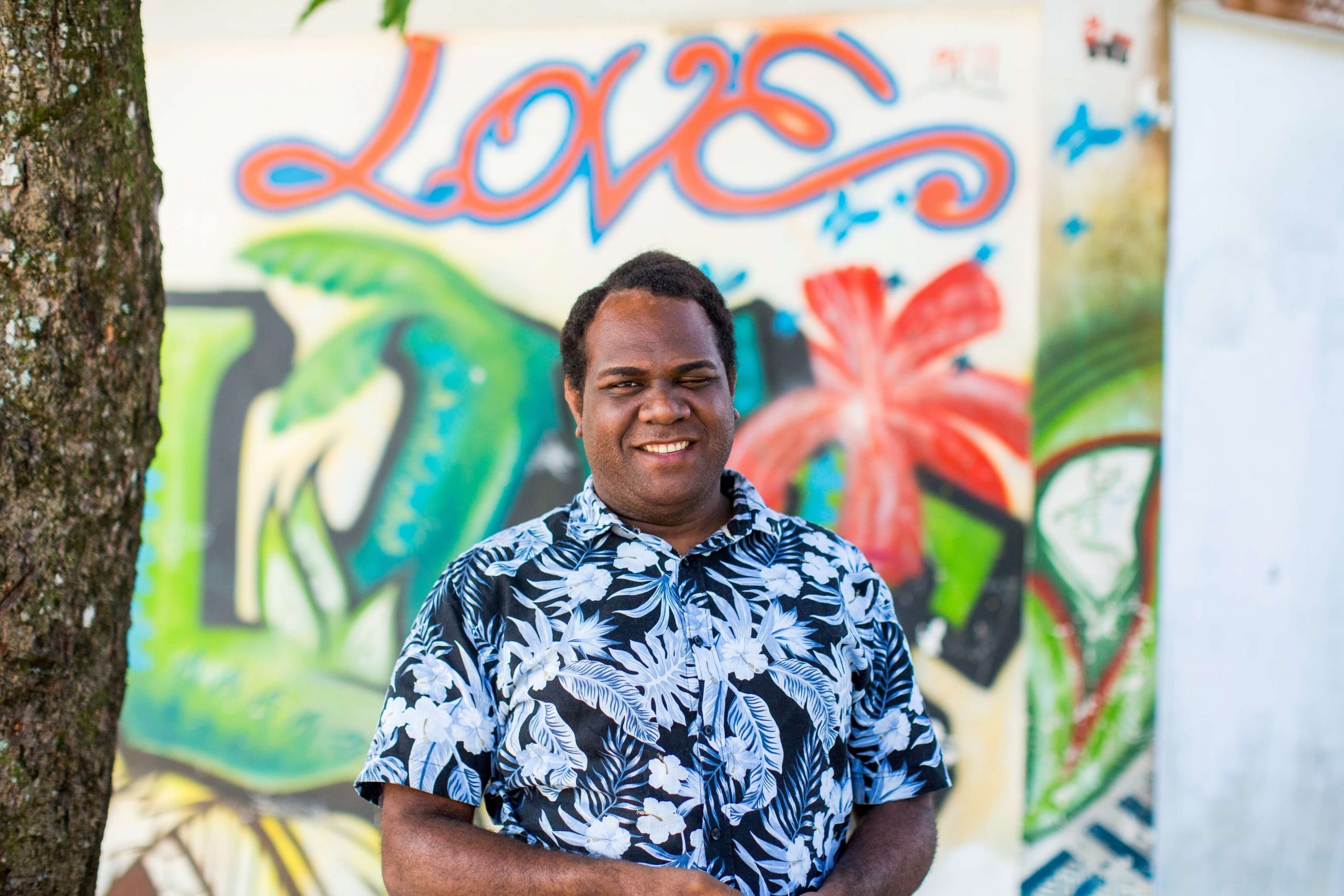
Yannick’s story
“My name is Yannick. I work at VPride as Programs Manager and I am 30 years old. I coordinate all the activities that we run with the various SOGIE [sexual orientation, gender identity, and gender expression] members in our community.”
